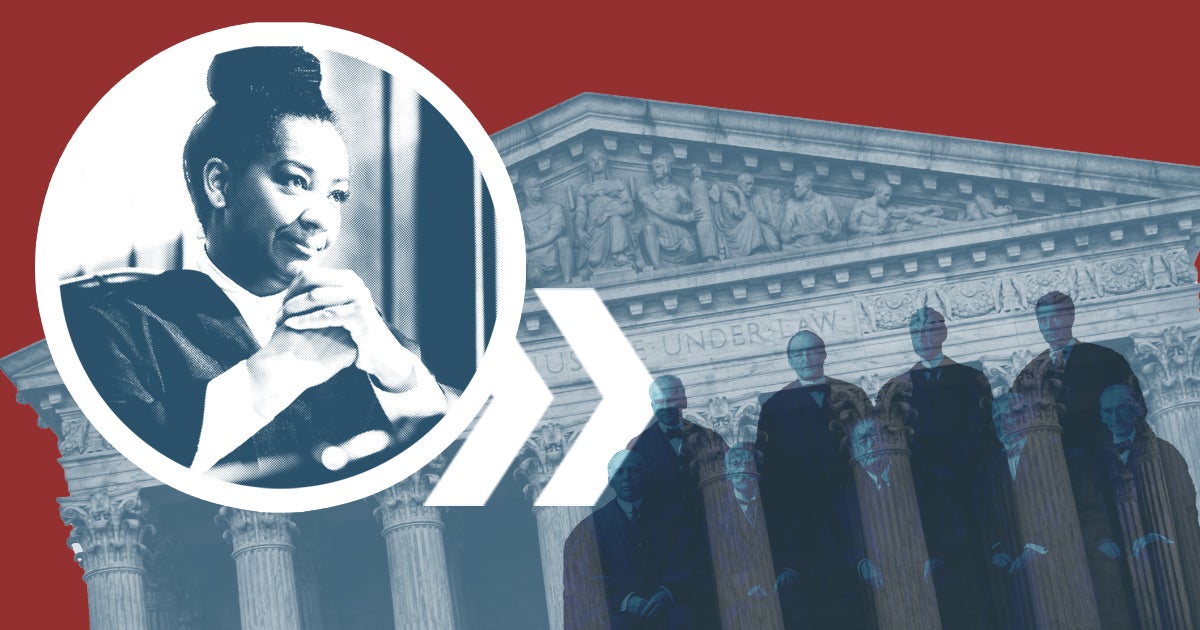
by Jorge Gomez • 3 minutes
The first round of federal judicial nominees could be coming very soon, possibly sometime in the next few weeks, according to Politico. As we wait for the Trump administration’s announcement, there’s a major question surrounding judicial nominations: what kind of judges will the President nominate?
During his first term, Trump left a defining legacy on the federal bench by appointing hundreds of strong, originalist judges. That included three Supreme Court justices, 54 judges to the courts of appeals and more than 170 to district courts. Many of the judges serving right now have demonstrated a steadfast commitment to protecting religious liberty.
Legal experts, however, say that President Trump’s criteria for lifetime judgeships should change during his second term, especially because the political landscape in 2025 is very different than it was in 2017.
The President has opportunity this time around to select the strongest conservative judicial candidates available, according to Michael A. Fragoso—a fellow at the Ethics & Public Policy Center and a partner at Torridon Law PLLC. During the previous Trump administration, Fragoso also served as chief counsel for nominations on the Senate Judiciary Committee and deputy assistant attorney general in the Office of Legal Policy.
Fragoso points out that the first Trump administration frequently had to opt for more “moderate” nominees. There was a big focus on nominees’ credentials and pedigree to fill vacancies. This strategy had a lot to do with trying to get nominees confirmed in a Senate that had a narrow 51-49 Republican majority back in 2017.
The Senate’s composition today looks vastly different. And some Senate norms and procedures on judicial nominations have also undergone changes.
“The Senate has a 53-47 Republican majority, and…when it comes to judges, the moderates are no longer in charge,” Fragoso writes. “This means that the kind of top-of-the-class, clerked-for-four-justices-and-the-Pope, writes-poetry-about-calculus nominees Trump needed to find last time just aren’t necessary politically.”
“Nominees should still be good, of course: textualist-originalists who did well in law school, clerked for prestigious conservative judges, and have impressive careers are what’s best for the judiciary,” adds Fragoso. “But if Trump wants a tie to go to conservatism and not credentialism, it can.”
Fragoso says that in term 2.0, Trump’s vetting process must “move to substance.” He lays several questions the administration should be asking, such as:
Many more legal experts echo that sentiment. Mike Davis, who leads the conservative judicial advocacy group called Article III Project, says there’s an urgent need for “even more bold and fearless judges in President Trump’s second term.”
Trump has to make sure he selects nominees with “judicial fortitude,” says Robert Luther, who served as associate counsel to Trump during his first term and also assisted in the judicial nomination process. According to Luther, fortitude is the ability to withstand external pressures.
“We were looking for leaders; judges who would not be intimidated by the press, their colleagues, or even some Stanford Law students,” Luther wrote in the Harvard Journal of Law & Public Policy.
“We see how much the media and politicians attack the judiciary, and you need judges who will stand strong in the face of those attacks,” said Carrie Severino, president of Judicial Crisis Network.
Josh Blackman, professor at the South Texas College of Law, argues that Trump’s nominees must show judicial courage, which he defines as “a record of publicly demonstrating courage in the face of criticism by legal elites.”
“If they haven’t done it before becoming a judge, they will not do it after becoming a judge,” Blackman maintains. “Courage is like a muscle: it must be exercised. Every future Trump nominee should be able to show such steadfastness by word and deed.”
The opportunity is ripe for the administration to make an impact on the judiciary, with about 45 vacancies currently available. And the number of vacancies is likely to jump much higher.
More than 240 judges will be eligible to take senior status over the next four years, according to Reuters. Senior status is a type of semi-retirement in which a judge may continue to hear cases, but their judicial seat is open and can be filled by the sitting president. The Guardian recently reported that there could be a total of “300 potential judicial appointment opportunities for Trump.”
Religious Americans confront increasing attacks on their rights. Now, more than ever, our federal courts need judges who are committed to protecting the Constitution, religious liberty and the rule of law. First Liberty will continue evaluating the record of judicial nominees and providing the facts with the administration on which ones are best qualified to protect your religious freedom.